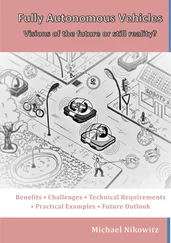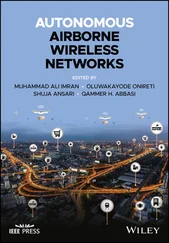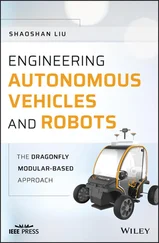After turning on several dirt roads, they reached a newish farm in the middle of a solar field. Its main building was an arched wall of thick glass set deeply into a grassy hill that rose like a green bubble out of a sea of dark, boxy solar antennas dribbling hydrocarbons into underground tanks. A woman stepped out of a door cut into the glass wall, releasing a blast of sound. Someone inside was listening to a loud news feed. The woman’s arms tensed as two overclocked matter cutters powered up beneath her sleeves.
Based on the pattern broadcast by Youssef’s eye movements as he scanned the area, Paladin considered it statistically unlikely that he’d been here before. This would be a test for Youssef as well as Eliasz.
“Thomasie.” Though the woman greeted Thomasie, she continued to block the door as they approached. Paladin noticed the driveway was fabbed to be impossibly smooth and warm; suspended inside its foam were long strands of nearly invisible wire that would radiate a gentle heat when the weather turned.
“Hi, Roopa.”
As Thomasie led them past Roopa’s barely concealed weapons, she gave Paladin a long look, eyes lingering on his shields. The room beyond her was illuminated by carefully reflected natural light, and trees grew out of the moss-covered floor. Nearly every piece of furniture was a living bonsai. One red light from a small industrial fabber blinked in the corner, exchanging data in a system encrypted so well that Paladin could only access information about the house climate. Somebody had burned serious money on this little farmhouse.
Thomasie led them to a round room with a conference table that grew out of the floor, its surface a carefully engineered weave of branches. The ceiling was perforated by a spiral staircase whose fabbed metal skeleton clanged and shook as three people came down to meet them. Like Thomasie, the others wore their expensive clothing carefully disheveled.
Iqaluit was a big town, but it wasn’t that big. If Jack was smuggling pharma through here, she was probably dealing with these guys in some way. They might be outsourcing the production of black pharma to her Federation labs, or selling her wares through their connections in the north. Even if they weren’t directly doing business, these people surely existed at the center of a local social network that brought together anti-patent radicals, pirates, and millions of people desperate for cheap drugs. If he and Eliasz could gain access to that network, they’d find Jack.
“Call me Bluebeard,” said one of the people who had just descended the stairs. She was wearing blue waterproofs and no shoes. Her dark hair fell in a wavy tangle across her face, nearly obscuring the fabric sensor patch that covered her left eye socket. From the tension in her shoulders and back, it was clear she’d been working with her hands for several hours—though whether it was at a gesture console or in the fields, Paladin couldn’t tell. “These are my colleagues, Blackbeard and Redbeard.” She pointed at two pale-skinned men whose clothing did not match their nyms. “Welcome to Arcata Solar Farm. Let’s all sit down.” Bluebeard’s tone was neither welcoming nor inviting. She had just issued an order.
Redbeard cooked espresso using an antique steam-driven machine while Bluebeard stared at the data Eliasz was beaming to her eyepatch. It was the formula for an attention stabilizer that the IPC had acquired for just this purpose, after it failed out of clinical trials. At least 50 percent of the people taking it had developed debilitating migraines that lasted for days. But there was no way to know that from the formula; it had all the appearance of legitimacy.
“You say you got this from PharmPraxis?” Bluebeard asked, her single-eyed gaze taking in both Eliasz and Paladin, who sat at the bonsai table across from her.
Eliasz nodded.
Trying to maintain the illusion that he was mentally damaged, Paladin forced himself to train his front visual sensors on some water molecules traveling through the tree whose body comprised the table, leaning his head close to the grain and microscoping in on it. His other sensors were taking in as much data as he could without tripping any alarms.
“This is very interesting,” she continued, flicking the data to a holo display in front of Blackbeard. “I’m going to have to ask you to stay here while we do more analysis.” She sent a burst of network traffic to Roopa, who appeared several seconds later at the door to the conference room. “Make yourself comfortable,” Bluebeard said to Eliasz. “You can use our gaming system if you want.”
Eliasz gripped Paladin’s arm. “That’s fine, but the bot stays with me.”
Bluebeard shrugged. “No problem.” Then she turned to the tall Federation man who hated Big Pharma. “Youssef, you come with us.”
Roopa loomed above them. When Paladin tuned her perimeter network it was just another unreadable haze of encrypted traffic.
JULY 5, 2144
“That was seriously fucked up,” Threezed said enthusiastically.
Jack had taken the sub deep below the surface. The portals in the control room looked like dark ellipses from an enormous text message. Jack and Threezed were watching Taxi Driver, a mid-twentieth-century movie about a man who goes insane and tries to free an indentured sex worker in New York City.
Threezed scratched his face, where the last of his scabs was flaking off. He’d cleaned up pretty well after that first night when they’d introduced themselves. He refused to talk about what had happened, and Jack didn’t push. The fact was, she didn’t want to think about what she’d done to Threezed’s client any more than he did.
After sleeping for nearly twenty-four hours, Threezed had awakened with a sardonic personality and the kind of youthful energy that every Vive addict was chasing. First he offered to tune her engines—he claimed he knew his way around sub mechanics—but Jack wasn’t prepared to have some stranger without a past going that deep into her systems. She was perfectly willing to put him on homemaker duty, though. He couldn’t do much damage scrubbing.
When he wasn’t tidying something, Threezed focused his attention on the mobile she’d loaned him. His only implant was an indenture tracker, so he’d been relying on these flimsy, foldable devices his whole life. Mobiles weren’t exactly durable, or powerful. But they could access plenty of bandwidth from the free mote network, whose microscopic data relays were sprayed into the atmosphere by drones in most of the economic coalitions.
Jack kept the free motes in range stunned with a signal jammer, and she didn’t want Threezed using the sub’s comms, so he was left with nothing to do but stream her locally stored movies from the motes in her ventilation system. He started with movies from the twenty-first century, where the English accents were easier to understand and the resolution was pretty good. Then he moved on to silent movies of the 1910s and ’20s, their worlds rendered in abstract grayscale, like engineering diagrams. He said it was easier for him to read the English intertitles than understand the weird accents in movies from later decades.
Tonight, however, he was pretty impressed with this full-color Martin Scorsese movie from 1976. They watched it with subtitles. “It’s strange how they were dealing with the same shit we are,” Threezed remarked, picking at a scab on his knee. “You always hear about how people were so diseased back then, and everything was really slow and backward, but I’ve totally known guys like that. I mean, I’ve totally known cab drivers like that.”
“Yeah, I guess people don’t change that much from century to century.” Jack shrugged. Now that the movie had him in a decent mood, it seemed like a good time to bring up their next move. “So, we’re going to get to Inuvik in a day or two,” she said. “I can drop you off there.” A bustling port town on the Arctic coast, Inuvik was the perfect place to get lost. Threezed could catch a fast train from there to dozens of big cities in the Zone.
Читать дальше
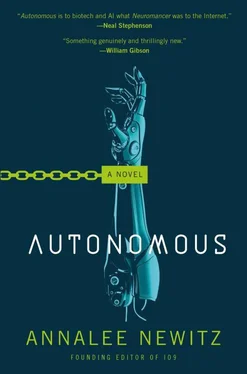



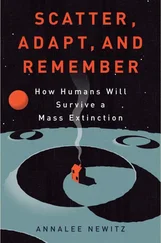


![Аннали Ньюиц - Автономность [litres]](/books/424681/annali-nyuic-avtonomnost-litres-thumb.webp)

